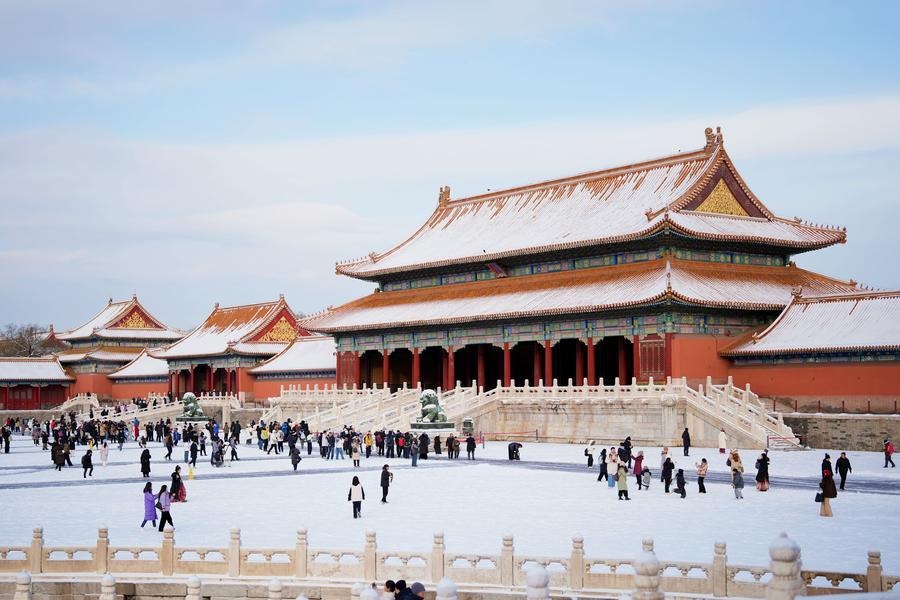Decades of change: Let the past serve the present

Motivations today
In 1996, the patterns and trends of opening were clearly observable to people like myself living and working in China. I was a lawyer at that time advising multinational corporations entering the China market. At the same time, I had served as central bank advisor to regional governments such as Vietnam, Laos and Cambodia making the transition from planning to market. I also served as advisor to China on financial reforms and in particular the blueprinting of what would become the State-owned enterprise reform, a keystone of China's own managed transition to a socialist market economy.
That year I wrote a book called China as No 1 (a play on the title Japan as No 1 written by Harvard professor Ezra Vogel more than a decade earlier that explained Japan's own economic rise). China as No 1 predicted China's rise as an economic powerhouse. There was no magic in my prediction, viewed as both radical and unrealistic by Western media and policymakers.
Working with officials in China's government on a daily basis – either in seeking approvals and policy guidance for the foreign investors who were my clients, or in advising them on comparative approaches of other countries to both economic development and industrialization -- I had access to the plans and programs that would be instituted in the five-year plan ahead, and in the next five-year plan underway. The vision of the leadership was clear, as was their determination to implement it.
The book China as No 1 reflected this vision and the aspirations of China's people to pull themselves out from underdevelopment and get ahead. Not surprisingly, Western media and political elites considered my book as "pro-China". Like Edgar Snow before me, I was quickly labeled a Marxist and Communist.
In 2001, I wrote another book China's Century. The premise was straightforward: The 19th century belonged to Britain; the 20th century belonged to America; the 21st century would belong to China. At the time another American named Gordon Chang, who was unhappy about his experiences in China, wrote a competing book called The Coming Collapse of China. His premise was that China's economy would collapse within five years if it did not adopt an American model of democracy.
These two books gave rise to competing views on China. My view represented the "China Century Theory" while Chang's represented the "China Collapse Theory." At the time, the political counselor of the American embassy in Beijing (effectively the second-highest ranking officer after the ambassador himself), spoke to me sternly and said that the American State Department considered the "China Collapse Theory" to be the correct view. "Regardless of whether it is five years or a little more, China will collapse economically if it is not an American-style democracy," he proclaimed to me, effectively warning that I should change my view.
Of course some 17 years later China's economy has not collapsed but only grown stronger and more vibrant. In stark comparison, productivity in America has gone down consecutively each year reaching negative figures. With the rise of Donald Trump's fascist agenda for America, there is now a vibrant anti-fascist movement organically rising against Washington politics. We see American democracy, as it has evolved today, being severely questioned by the American people themselves. Many Europeans are questioning whether American values should be the binding force of universal values, or whether a new set of values are needed.
In 2018, reflecting on 40 years of dramatic change, the comparison between Washington's vision of our future and Beijing's are starkly different. The administration of President Donald Trump has refused to believe in climate change as a scientific fact, has torn up the UNFCC Paris climate accord, openly revitalizes fossil fuels while condemning renewables, has withdrawn America from UNESCO, disregards UN processes and multilateral trade agreements, and threatens and antagonizes other nations insisting on only "America first".
Meanwhile, China is entering a new era, proving the global leader on renewable energy solutions and having adopted Ecological Civilization as a national policy. China's leadership under President Xi Jinping is determined to work through the United Nations processes for global peace and development, is promoting globalization through multilateral trade and technology exchanges, and is seeking to end antagonism through rational dialogue and economic empowerment. After 40 years of reform and opening-up, China is looking outward globally and adopting the shared vision of "a common destiny of mankind".
The author is the founding director of the Himalayan Consensus and a senior international fellow at the Center for China and Globalization.
The views expressed here don't necessarily represent those of China Daily.


































